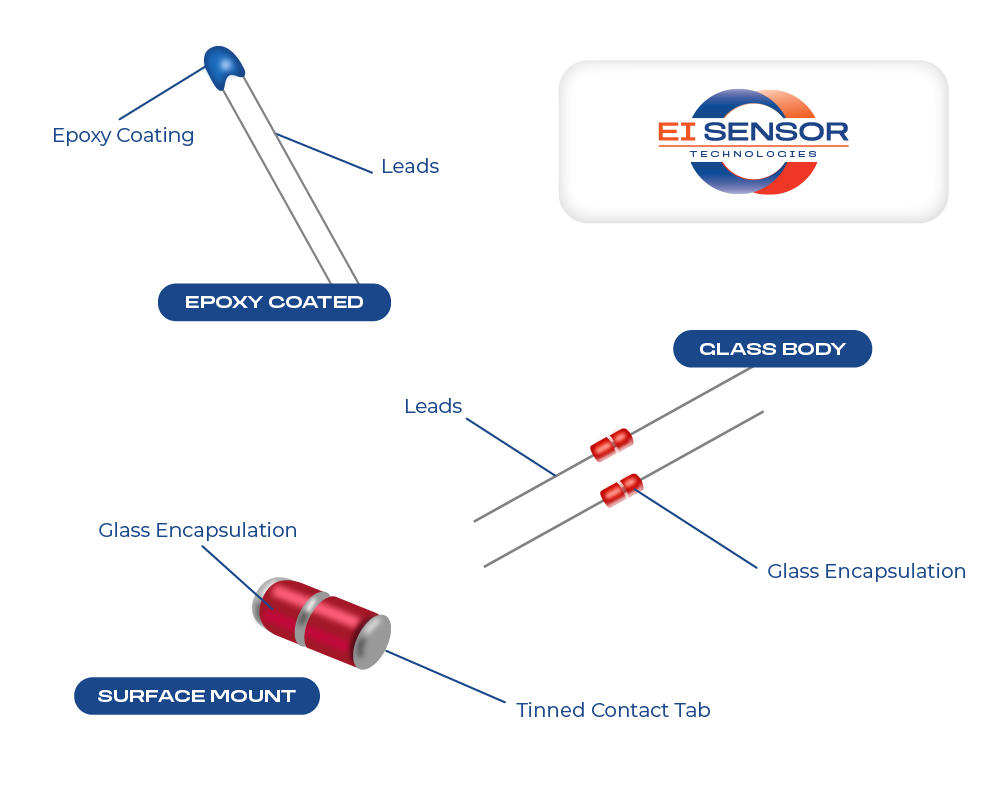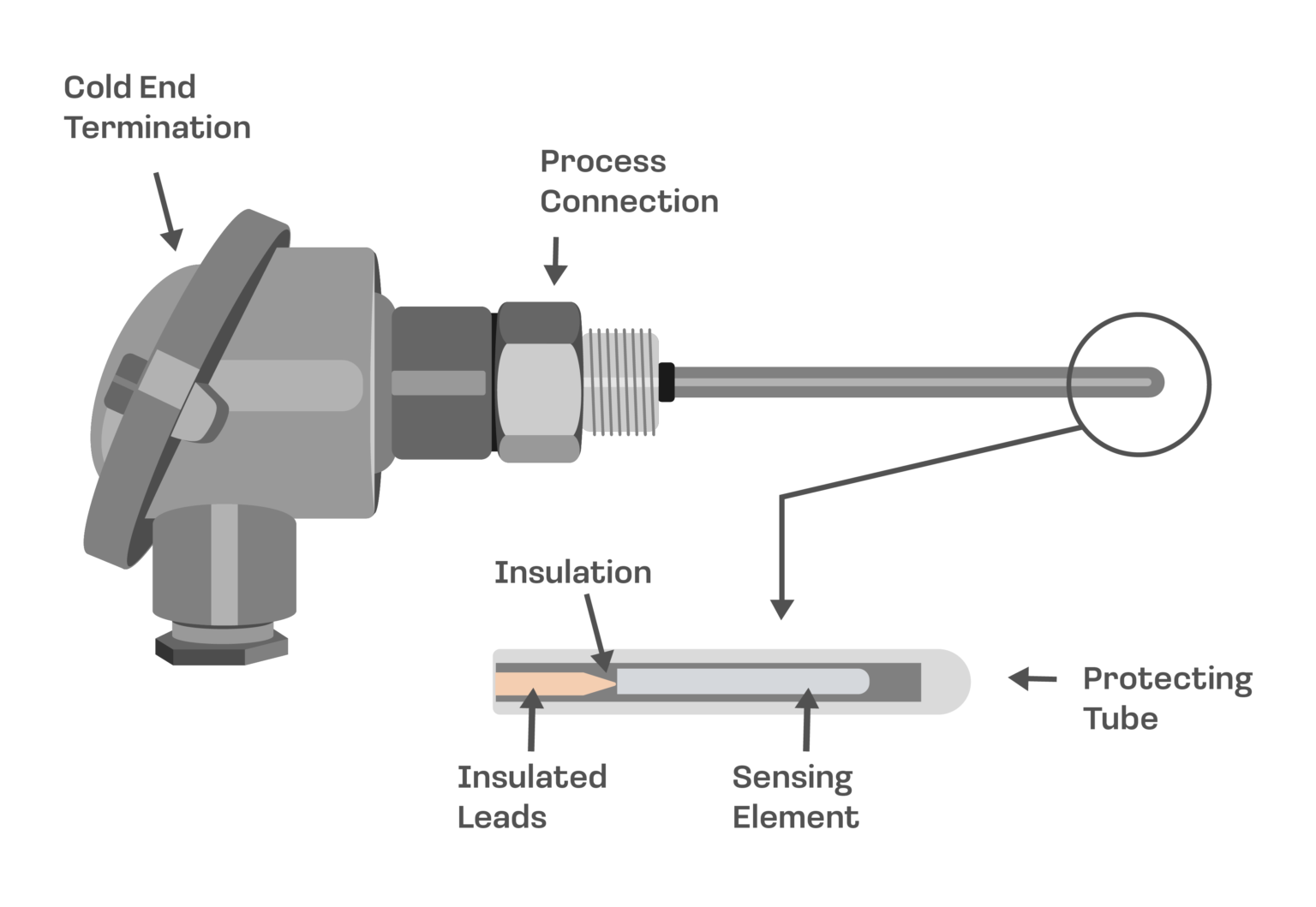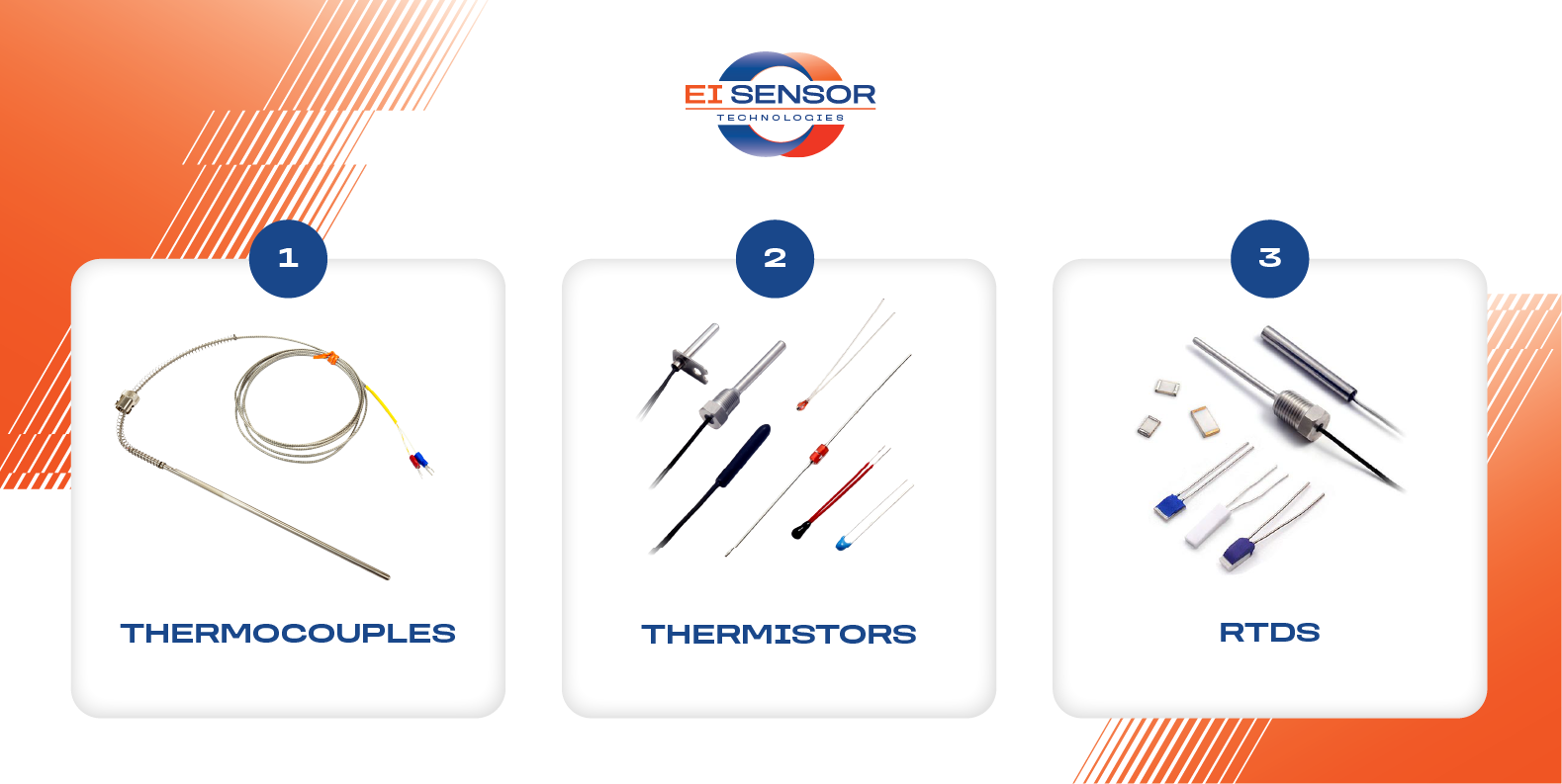BLOG
November 25, 2025
Share this Article:
The Role of Thermistors in Electric Vehicles
As electric vehicles (EVs) continue to gain traction worldwide, efficient thermal management has become essential for optimizing performance and extending battery life. Thermistors, which are temperature-sensitive resistors, play a critical role in monitoring and regulating the temperature of various components within EVs. By providing accurate, responsive temperature measurements, thermistors help prevent overheating and maintain optimal conditions for key systems, from the battery pack to the motor.
This ability to accurately monitor and manage heat helps enhance electric vehicle efficiency, ensuring that energy use is optimized and components remain protected across a range of driving conditions.
Important Functions of Thermistors in EVs
Thermistors play several key roles in electric vehicles, contributing to reliable operation and overall efficiency. These functions include temperature monitoring, thermal management, and protection of critical components like the battery, motor, and power electronics. By keeping these systems operating within ideal temperature ranges, thermistors help boost electric vehicle efficiency and extend the lifespan of essential EV components.
Battery Management Systems
In electric vehicles, battery management systems (BMS) rely heavily on thermistors to monitor the temperature of battery cells. Maintaining optimal cell temperatures is critical for safety, performance, and battery lifespan. Thermistors in the BMS provide real-time data, allowing the system to adjust cooling or heating as needed to prevent overheating or excessive cold. This temperature control not only extends battery life but also enhances electric vehicle efficiency by optimizing energy use within the battery pack.
Charging System
Thermistors also play a vital role in the EV charging system by monitoring the temperature of battery cells during charging. Since charging generates heat, thermistors help make sure the cells do not overheat, which could degrade battery health or even pose safety risks. By providing precise temperature data, thermistors allow the charging system to adjust power flow to maintain safe conditions, improving charging efficiency and protecting the battery over time. This function is key to supporting overall electric vehicle efficiency and promoting reliable performance.
Electric Motor & Inverter Protection
Thermistors play an essential role in protecting the electric motor and inverter, both of which generate significant heat during operation. By monitoring temperatures in real-time, thermistors allow the system to reduce power or activate cooling when temperatures get too high, preventing overheating and potential damage. This thermal protection helps keep the motor and inverter performing reliably, enhancing the overall durability and performance of the EV’s powertrain.
Climate Controls
Thermistors are also crucial in managing the climate control systems within electric vehicles, ensuring passenger comfort without sacrificing energy efficiency. By accurately monitoring cabin and HVAC system temperatures, thermistors help regulate heating and cooling functions, adjusting energy use as needed to maintain optimal cabin conditions. This targeted temperature control conserves battery power, balancing comfort and efficiency to maximize the EV’s range.
Thermal Management
Thermal management is essential for maintaining consistent performance across an EV’s systems, especially under varying conditions. Thermistors provide precise temperature data that helps manage heat in the battery, motor, and electronics, enabling cooling systems to respond efficiently. This responsive thermal control prevents overheating, supports optimal operation, and reduces unnecessary energy consumption, all of which contribute to the overall efficiency and longevity of the vehicle.
Safety & Reliability
Thermistors enhance safety and reliability in electric vehicles by monitoring temperatures across critical systems, ensuring they operate within safe limits. Accurate temperature data allows systems to adjust or shut down if temperatures reach unsafe levels, preventing potential failures or hazards. This real-time monitoring not only protects vital components but also boosts the vehicle's overall dependability, giving drivers confidence in their EV’s performance and longevity.
Types of Thermistors Used in EVs
Electric vehicles rely on two primary types of thermistors: Negative Temperature Coefficient (NTC) and Positive Temperature Coefficient (PTC) thermistors. NTC thermistors, whose resistance decreases as temperature rises, are typically used in applications like battery management and motor protection, where precise, responsive temperature measurement is critical. PTC thermistors, which increase in resistance with rising temperature, are often used for safety features, such as overcurrent protection. Each type serves specific functions within the EV, contributing to efficient thermal management and system safety.
Negative Temperature Coefficient Thermistors (NTC)
NTC thermistors are widely used in EVs for their sensitivity and responsiveness to temperature changes. As the temperature rises, their resistance decreases, allowing for precise monitoring and control of components like battery cells and electric motors. This real-time responsiveness makes NTC thermistors ideal for applications where accurate temperature measurement is needed to prevent overheating and ensure stable performance across varying conditions.

Positive Temperature Coefficient Thermistors (PTC)
PTC thermistors increase in resistance as temperature rises, making them suitable for applications focused on safety and overcurrent protection in EVs. When temperatures exceed a certain threshold, the rising resistance of PTC thermistors effectively limits current flow, helping prevent overheating and potential damage. This characteristic makes PTC thermistors valuable for protecting sensitive electronics and making sure that systems remain within safe operational limits.
How Thermistors Will Continue to Shape the Future of Electric Cars
Thermistors are set to play an even more significant role in electric vehicle advancements, supporting innovations in fast charging, extended range, and improved safety systems. As EV technology evolves to meet higher demands for efficiency and performance, precise thermal management becomes increasingly essential. Thermistors provide the real-time data needed to enhance battery life, optimize power usage, and ensure safe operation under varying conditions. With thermistors driving these improvements, electric vehicles will continue to become more reliable and sustainable.
To learn more about
thermistor solutions for electric vehicles, contact EI Sensor at sales@ei-sensor.com.












